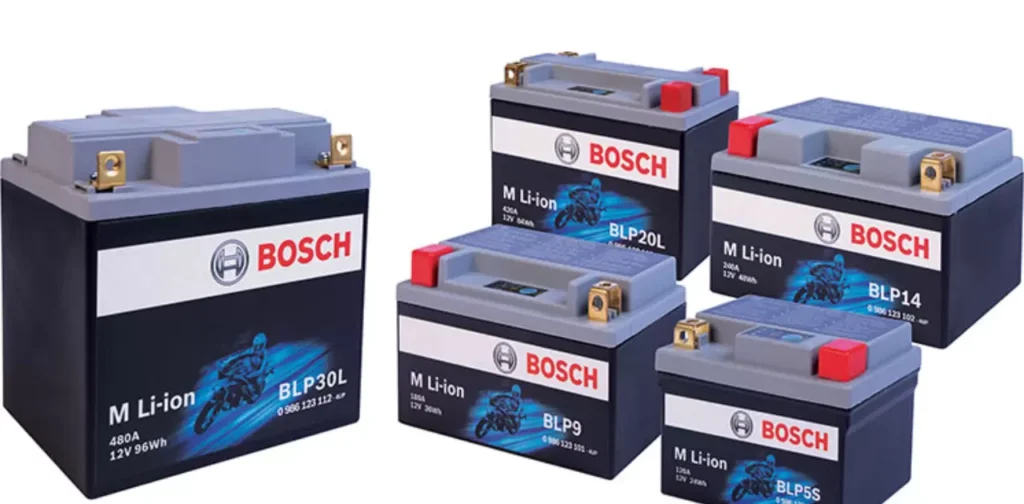Choosing the right battery size for your electric bike is essential for optimizing your riding experience. A battery’s capacity measured in amp-hours determines how far you can travel on a single charge. It’s crucial to match the battery size to your riding needs and preferences.
If you mainly ride short distances or on flat terrain a smaller battery size may suffice. If you plan to tackle longer rides or encounter steep hills, opting for a larger battery with higher capacity is advisable. This ensures you have enough power to reach your destination comfortably without worrying about running out of juice.
Consider factors like your weight riding habits and terrain when selecting a battery size. Heavier riders or those who frequently use pedal assist on challenging routes may benefit from a larger battery to maintain performance and range. The best battery size for your electric bike depends on your individual requirements and intended use.
Read more Blog: Do You Need A License For Electric Bike
What are the e-battery options?
When it comes to e-battery options for electric bikes there are several factors to consider. One of the primary considerations is the battery’s voltage typically ranging from 24 volts to 72 volts. Higher voltage batteries tend to offer more power and speed making them suitable for riders who require enhanced performance.
Another crucial factor is the battery’s capacity measured in amp-hours. Battery capacities can vary widely from around 8Ah to over 20Ah. A higher capacity battery provides more energy storage, resulting in longer rides between charges. This is particularly beneficial for riders who cover longer distances or require extended battery life.
The type of battery chemistry is essential to consider. Common battery chemistries for electric bikes include lithium-ion and lithium-ion phosphate. Li-ion batteries are lightweight and offer high energy density while LiFePO4 batteries are known for their long lifespan and enhanced safety features.
What range can I expect?

The range you can expect from your electric bike depends on various factors, including battery capacity, terrain, rider weight, and riding style. Generally, e-bikes with larger battery capacities can travel farther on a single charge compared to those with smaller batteries.
On flat terrain and with moderate pedal assistance, you can typically expect to cover anywhere from 20 to 50 miles on a single charge, depending on the battery size and other factors. If you encounter hills or use the throttle more frequently your range may decrease. It’s essential to consider your intended riding routes and habits when estimating the range of your electric bike.
What is the difference between an integrated and external battery?
The main difference between an integrated and external battery lies in their placement on the electric bike. Integrated batteries are built directly into the bike’s frame, providing a sleek and seamless appearance. This design offers a cleaner look and better protection against damage or theft.
On the other hand external batteries are mounted externally usually on the downtube or rear rack of the bike. While they may be easier to access for charging or replacement they can add bulkiness to the bike’s appearance and may be more susceptible to damage or theft.
The choice between an integrated and external battery depends on personal preference and specific needs. Integrated batteries offer a more streamlined look and enhanced security, while external batteries provide convenience and potentially easier access for maintenance.
An example of a semi-integrated battery

A semi-integrated battery is a hybrid between an integrated and external battery design offering a compromise between aesthetics and accessibility. In this design the battery is partially integrated into the bike’s frame typically located within a cavity or compartment for a more streamlined appearance.
One example of a semi-integrated battery is a model that features a removable cover or panel on the frame allowing access to the battery for charging or replacement. While not completely hidden like fully integrated batteries semi-integrated designs still offer a cleaner look compared to external batteries with some level of protection against damage or theft.
Example of integrated battery
An integrated battery is fully built into the frame of the electric bike, seamlessly blending with the overall design for a sleek appearance. These batteries are often concealed within the downtube or other parts of the frame, making them virtually indistinguishable from traditional non-electric bikes.
For example some electric mountain bikes feature integrated batteries that are completely hidden within the downtube maintaining the bike’s aesthetics and providing protection against damage or theft. Integrated batteries offer a clean and streamlined look while maintaining the bike’s balance and handling characteristics.
Read more Blog: Rajkotupdates.news Watchgpt App Apple Watch Users
What battery brand should I choose?
When choosing a battery brand for your electric bike, it’s essential to prioritize quality, reliability, and safety. Look for reputable brands known for producing high-performance batteries with advanced technology and stringent quality control measures.
Some well-regarded battery brands in the electric bike industry include Panasonic Samsung LG, and Sony. These companies have a proven track record of manufacturing lithium-ion batteries with high energy density, long lifespan, and reliable performance.
Consider factors such as warranty coverage customer support and compatibility with your electric bike model when selecting a battery brand. Researching reviews and feedback from other electric bike owners can also provide valuable insights into the performance and durability of different battery brands.
Bosch lithium-ion batteries

Bosch lithium-ion batteries are highly regarded in the electric bike industry for their quality reliability and performance. Bosch is a trusted name known for its innovative engineering and commitment to producing cutting-edge technology.
Their lithium-ion batteries are designed to provide long-lasting power and consistent performance making them ideal for electric bikes used for both commuting and recreational purposes. Bosch batteries come in various capacities to suit different riding needs, ranging from compact options for urban commuting to higher-capacity batteries for longer rides.
One of the key advantages of Bosch batteries is their compatibility with a wide range of electric bike models, including those from other manufacturers. This versatility makes Bosch batteries a popular choice among electric bike riders seeking reliable power solutions.
Frequently Asked Question
What is a good ebike battery size?
A good e-bike battery size depends on your individual riding needs and preferences. For most riders, a battery with a capacity between 10Ah and 15Ah is sufficient for daily commuting and recreational rides, offering a balance between range and weight.
Which battery is best for electric bikes?
The best battery for electric bikes typically depends on factors like capacity reliability and compatibility. Lithium-ion batteries from reputable brands like Bosch Panasonic Samsung or LG are often preferred for their balance of performance longevity and safety features.
Is 500Wh battery enough for an ebike?
A 500Wh battery is typically sufficient for many e-bike riders, offering a decent range for daily commuting and recreational rides. Riders covering longer distances or tackling hilly terrain may prefer a higher capacity battery for extended range and performance.
How do I choose an electric bike battery?
To choose an electric bike battery, consider factors like capacity voltage and compatibility with your bike model. Determine your riding needs such as range and terrain to select a battery size that meets your requirements.
How many miles will I get from my battery?
The mileage you will get from your battery depends on factors like capacity terrain rider weight and usage. Expect anywhere from 20 to 50 miles on a single charge for typical e-bike rides, but this can vary based on individual circumstances.
Conclusion
Selecting the right battery for your electric bike is crucial for optimizing your riding experience. Consider factors like battery capacity, voltage, and compatibility with your bike model to ensure adequate power and range for your needs.
By evaluating these factors and choosing a trusted brand known for quality and reliability, you can enjoy longer rides with confidence and peace of mind.Remember that battery capacity alone does not determine mileage; factors like terrain, rider weight, and riding habits also play significant roles.
It is essential to assess your individual riding conditions and preferences when selecting an electric bike battery. With careful consideration and informed decision making you can find the perfect battery to power your e-bike adventures for miles to come.

Alexander Quinn is the author behind Filterabout.com. Known for expertise in diverse topics, Quinn’s content on the website reflects a versatile knowledge base catering to various interests.



![Jynxzi Age, Net Worth, Career[2024]](https://filterabout.com/wp-content/uploads/2024/05/Who-Is-Shanin-Blake-Age-Wiki-Parents-Dating-Net-Worth-300x148.jpg)
![Jynxzi Age, Net Worth, Career[2024]](https://filterabout.com/wp-content/uploads/2024/05/Jynxzi-Age-Net-Worth-Career2024-300x148.jpg)


![Kutty Surumi Net Worth, Bio, Age[2024]](https://filterabout.com/wp-content/uploads/2024/05/Kutty-Surumi-Net-Worth-Bio-Age2024-300x148.jpg)



![Jynxzi Age, Net Worth, Career[2024]](https://filterabout.com/wp-content/uploads/2024/05/Who-Is-Shanin-Blake-Age-Wiki-Parents-Dating-Net-Worth-150x150.jpg)